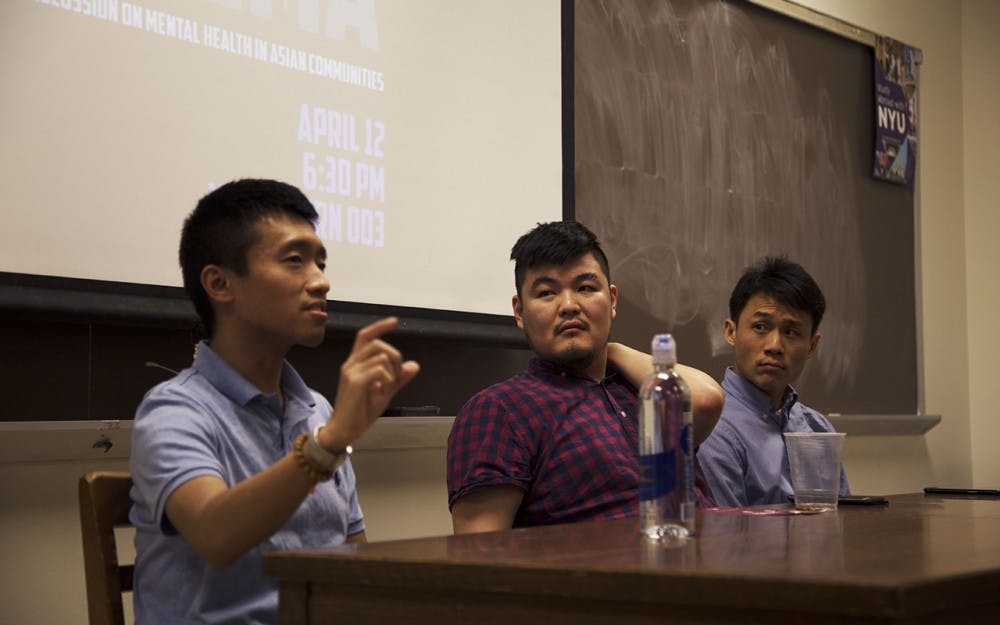Stereotypes and fears of disappointing families contribute to a lack of discussion of mental health in Asian communities, panelists said Wednesday evening.
The Indian Student Association’s Smashing Stigma event brought in counseling psychology doctoral students Jacks Cheng, Shaozhuan Li and Shu-Yi Wang for a panel discussion about the stigmas surrounding mental health in Asian communities.
Amani Karim, a member of ISA, helped plan the event.
Karim, a junior studying neuroscience and community health, said she struggled to find experts in the mental health field to talk because of the stigmas surrounding mental health and illness in Asian communities. In looking for mental health resources, Karim said she found a severe lack of people of color in the field.
“That’s a problem,” she said.
The panelists said this lack of diversity is partly due to the collective mentality, which contrasts with the individualistic nature of psychology, of many Asian cultures. Wang explained psychology was developed as a western practice and lacked a lot of diversity. However, he did say this was changing and allowing marginalized groups to feel more comfortable when reaching out for help.
Karim said she hoped that students who attended the event learned about the mental health resources on campus that are available for students. She and the panelists said there are many resources available for students to access.
“It’s OK to not be OK,” she said. “And there are a lot of reasons why you might not be OK.”
Some of the resources available include Counseling and Psychological Services and the Center for Human Growth. Within CAPS, students can take advantage of Crimson Corps, a peer support service, and the Let’s Talk programs that take place at different culture centers on campus.
Wang said many students come in for more practical reasons rather than emotional ones like anxiety and depression. For example, Cheng said one of the reasons the students he sees go to counseling was for procrastination help.
“Anxiety and depression manifest themselves differently — they look different,” Cheng said. “It’s more performance based.”
Li added that one of the other needs he frequently sees brought up for counseling is the contradiction of students’ career goals clashing with their families’ traditions.
Wang explained a strong belief in Asian communities tend to be that if an individual does something well, this reflects positively upon their families. However, if they do something poorly, then their families suffer alongside the individual.
Li said in China, many people feel like they have to deal with their problems internally. He said many people believe depression and anxiety are their own issues and they should not bother others with them.
“It doesn’t mean in Chinese culture we don’t have the concept of mind or psyche or spirit,” he said. “It’s just different.”
Partly for this reason, Karim said panels like these are important to have on campus to open up the discussion about mental health among students, especially among the Asian community.
“Don’t be afraid,” she said. “There are people here to help you. It’s going to be OK.”






